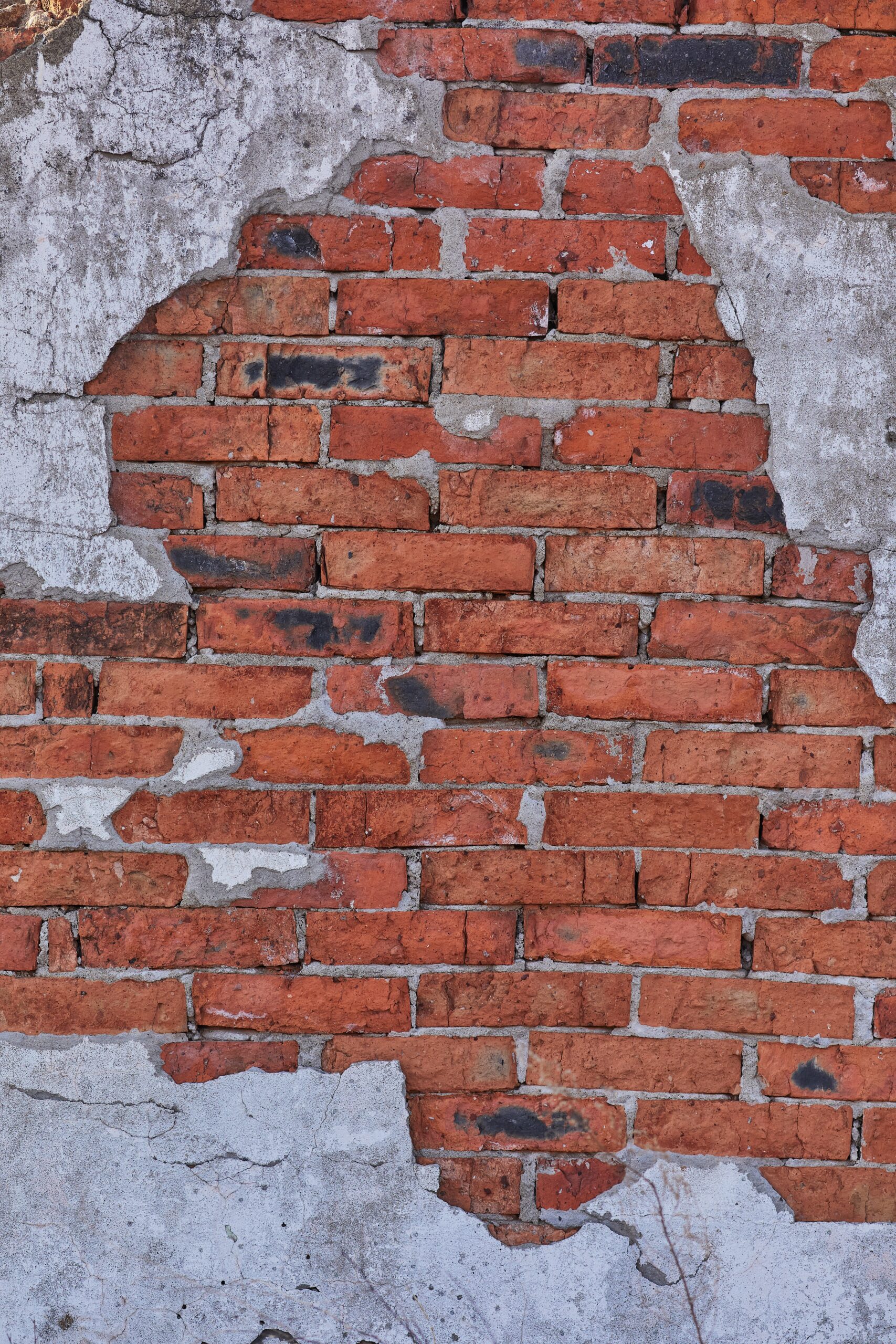FAQs
Find answers to common questions about the Party Wall Act. Get clarity on procedures, notifications, disputes, agreements, and more. Navigate the complexities with confidence through our comprehensive FAQ section.
For tailored advice on Party Wall matters, contact us:
Topics
What is the Party Wall Act?
The Party Wall Act 1996 is a crucial law that provides a clear roadmap for managing construction projects that might impact party walls, boundary walls, and neighbouring properties. This Act ensures that when you plan construction work near these shared elements, you follow specific steps to notify and involve your neighbors in a cooperative and lawful manner. By doing so, the Act aims to prevent disputes and promote understanding among property owners, fostering a smoother building process and harmonious relationships between owners.
When does the Act apply?
The Act comes into play when you’re gearing up to undertake certain types of construction work that have the potential to impact shared walls, boundaries, or digging near properties owned by your neighbours.
These specific activities are outlined in the Party Wall Act, which sets out guidelines to ensure proper communication, cooperation, and legal compliance when such work is on the horizon. The Act serves as a practical guide to make sure everyone is informed and involved, reducing the likelihood of conflicts and misunderstandings during construction projects.

Do I need a Party Wall Surveyor?
Bringing in a party wall surveyor offers distinct advantages. These experts specialize in navigating the intricacies of the Party Wall Act, ensuring that your construction project follows all the necessary legal procedures. They handle the vital task of serving formal party wall notices to your neighbors, providing them with a clear understanding of your plans.
Additionally, in cases where disputes arise, a party wall surveyor acts as a neutral mediator, working to find fair and practical solutions that satisfy all parties involved. With their guidance, you can proceed confidently, knowing that your project adheres to the law and maintains positive neighbor relations.
What is a Schedule of Condition?
A schedule of condition is a detailed record meticulously compiled before construction commences, capturing the existing state of neighbouring properties.
This thorough documentation proves invaluable in recognizing any damage that may occur due to construction. This practice ensures transparency, minimizes disputes, and upholds the principles of the Party Wall Act, fostering a smoother construction process for all parties involved.
What is a Party Wall?
A ‘party wall’ is a wall that straddles the boundary of land owned by two or more individuals. It serves multiple purposes: it might be an integral part of a building, a divider between two or more buildings, or even a ‘party fence wall’. An image of two houses with hands shaking symbolizes a party wall agreement.
A wall qualifies as a ‘party fence wall’ if it isn’t part of a building, but rather spans the boundary between different owners’ land, functioning as a separator. For instance, a masonry garden wall falls into this category, while wooden fences and hedges are not considered party fence walls.
Additionally, a wall can be deemed a party wall if it stands entirely on one owner’s land but is used by multiple owners to separate their respective buildings.
To summarise, a party wall is a shared element that plays a pivotal role in defining property boundaries and ensuring harmonious coexistence between neighbouring property owners. At Detailed Party Wall Surveyors, we specialize in navigating the technicalities of party walls to facilitate smooth agreements and resolutions.
What is a Party Wall Notice?
A crucial aspect of the Party Wall etc. Act 1996 is the issuance of notices that inform adjoining owners about impending construction work falling under the Act’s scope. These notices are vital for ensuring a transparent and respectful process between neighbors. At Detailed Party Wall Surveyors, we’re here to guide you through the intricacies of party wall notices, fostering cooperative resolutions.
- Party Structure Notice
Served under section 3 of the Act, Party Structure Notices encompass works outlined in section 2 (2) sub-sections (a) to (n). These alterations directly impact the party wall, including tasks like inserting beams, padstones, flashings, and removing chimney breasts.
– Notice Period: 2 months
– Information Required:
– Building owner’s name and address
– Nature and details of proposed work
– Start date of work
- Notice of Adjacent Excavation
Notices of Adjacent Excavation pertain to activities under section 6 of the Act, covering two excavation types:
– Excavating within 3 meters of the neighbor’s building below their foundations
– Excavating within 6 meters of the neighbor’s building, intersecting with a 45-degree angle plane drawn from their external wall’s bottom, often involving piled foundations.
These notices must include information akin to a Party Structure Notice and be accompanied by plans and sections depicting the excavation scope.
- Line of Junction Notice
Less common, Line of Junction Notices operate under section 1 of the Act and encompass:
– Building a new wall adjacent to a boundary
– Building a new wall astride a boundary
– Notice Period: 1 month
If the adjoining owner does not respond to a notice about a new wall by the boundary, work can start after the notice period. Building foundations can be placed under the adjoining owner’s land if necessary. For a new wall astride the boundary, the adjoining owner’s written response within 14 days is pivotal. If absent, the building owner builds entirely on their side of the boundary line.
Serving Notices
Notices can be served personally or via post. In cases where the adjoining owner’s name is unknown, “The Owner” suffices, but personal delivery or conspicuous display on the premises is essential.
Navigating party wall notices can be complicated, but at Detailed Party Wall Surveyors, we’re adept at ensuring proper communication and understanding to foster a seamless process for all parties involved.

What is an Agreed Surveyor?
An Agreed Surveyor is a neutral professional who plays a significant role in the Party Wall Act 1996 process. This surveyor is chosen jointly by both parties involved—the building owner and the adjoining owner—when there’s agreement on their appointment. The Agreed Surveyor’s primary responsibility is to oversee and regulate the party wall matters in a fair and unbiased manner.
The role of an Agreed Surveyor encompasses various essential tasks, including:
- Recording Conditions: The Agreed Surveyor documents the condition of the adjoining owner’s property through a detailed schedule of conditions. This serves as a reference point to assess any changes or damages caused by the construction work.
- Creating Awards: The surveyor can issue additional awards if necessary and drafts the Party Wall Award, outlining the terms and conditions of the proposed work, responsibilities of each party, and safeguards for the adjoining owner’s property.
- Site Monitoring: Regular site visits allow the Agreed Surveyor to monitor the construction activities, ensuring they align with the agreed-upon terms and minimize risks of damage to neighboring structures.
- Reviewing Proposals: The Agreed Surveyor reviews the building owner’s construction plans and ideas to evaluate their potential impact on the adjoining owner’s property.
- Serving Notices: The surveyor ensures that proper and accurate notices are served in compliance with the Party Wall Act, notifying the parties involved about the upcoming construction work.
- Damage Assessment: In the event of any damage caused by the construction, the Agreed Surveyor assesses the extent of the damage and includes it in the Party Wall Award for appropriate compensation.
Appointment
The appointment of an Agreed Surveyor is outlined in Section 10 of the Party Wall Act. When a dispute arises, both parties agree to appoint a single surveyor to oversee the process. This helps streamline the process and reduce the need for extensive discussions and negotiations.
Advantages:
Opting for an Agreed Surveyor offers several advantages:
- Efficiency: The Party Wall Award is typically obtained more swiftly as compared to cases with separate surveyors. This is due to streamlined communication and decision-making.
- Cost Savings: The cost of appointing an Agreed Surveyor is often lower since there’s only one surveyor involved. This also reduces the expenses related to obtaining the Party Wall Award.
Agreed Surveyor Legislation:
Section 10 of the Party Wall Act emphasizes the appointment of an Agreed Surveyor. It ensures that in cases of dispute, both parties mutually select one surveyor or individually appoint their surveyors. If both parties accept a single surveyor, that surveyor acts as the Agreed Surveyor.
Section 20 guarantees the impartiality of the appointed surveyor, prohibiting them from being aligned with either party in the dispute. This ensures a fair and unbiased process, safeguarding the rights of both parties involved.
At Detailed Party Wall Surveyors, we understand the importance of having an Agreed Surveyor who operates objectively, upholds the Party Wall Act, and ensures a smooth process for all parties.

When can building work start?
The timing for starting building work under the Party Wall Act hinges on the response from adjoining owners – whether they have consented or dissented to the proposed works.
- Consent from Adjoining Owners: If the neighbouring property owners have provided consent to the works, the notice often includes a clause allowing the building owner to commence the construction immediately.
- Dissent from Adjoining Owners: In the event of dissent, the building owner should wait until a party wall award is issued and the notice period has elapsed. For works falling under section 1 and 6, the notice period is 1 month, while section 2 works require a notice period of 2 months.
Should the award be served before the notice period’s expiry, the building owner can initiate the work prior to the notice period’s end only with written consent from the affected neighbour.
At Detailed Party Wall Surveyors, we guide you through the intricacies of the Party Wall Act, ensuring your building work adheres to legal requirements and maintains a harmonious relationship with adjoining property owners. Contact us today to navigate the process smoothly and compliantly.
Is a Party Wall Agreement legally required?
The Party Wall Act 1996 is a legal obligation that you must adhere to if your intended construction work falls within its scope. Ensuring your compliance with this Act is essential, and seeking advice from an experienced party wall surveyor can help you confirm whether your planned work is covered by the Act before you commence.
At Detailed Party Wall Surveyors, we emphasize the importance of understanding and adhering to the Party Wall Act. Our team of knowledgeable professionals can assist you in determining whether your project is subject to the Act’s requirements. Don’t risk overlooking your legal obligations – contact us today to ensure a smooth and compliant process for your construction project while maintaining a positive relationship with your neighbours.
Can I build on a Party Wall?
Yes, under the provisions of the Party Wall Act, homeowners have the right to carry out certain types of construction on a party wall or up to the boundary line. Here’s a concise overview of what you need to know:
- Building Up to the Boundary Line:
As a homeowner, you have the right to build up to the boundary line that separates your property from your neighbour’s. This can include completing party wall works without requiring explicit permission, as long as it falls within the scope of the Party Wall Act.
- Express Permission for Certain Developments:
With the express permission of your neighbour, you can extend your development to sit astride the boundary wall or line. This means that, with mutual agreement, your construction can cross over the boundary while adhering to the necessary regulations.
- Notice for Structural Impact:
Any construction that could impact the structural integrity of an existing boundary wall requires a written notice to be served to your neighbour. This notice should be sent at least two months before the work is set to begin.
- Seeking Advice from a Party Wall Surveyor:
If your neighbour has concerns about the proposed works, they cannot demand the construction to cease. However, they can seek the services of a party wall surveyor. This surveyor will assess the properties and determine how the development should proceed while considering the structural implications and potential impact.
- Close Proximity to Boundary Line:
Interestingly, if the work stops even a small distance, such as a centimetre, from the edge of the boundary line, different rules apply. In this case, the neighbour is not entitled to stop the construction. Instead, they should be informed as a courtesy before the work begins.
Shared Usage of Boundary Line:
It’s important to note that when construction occurs up to the boundary line, shared usage of the boundary and land on both sides will cease. Each property owner has the freedom to adapt and build on their own side of the boundary, as long as they stay within the marked boundary line.
At Detailed Party Wall Surveyors, we’re here to provide expert guidance and support as you navigate the complexities of the Party Wall Act. Whether you’re planning construction near a party wall or boundary line, our team of professionals can help ensure that your project complies with the law while respecting the rights and concerns of your neighbours. Contact us today for specialized assistance tailored to your needs.
What types of work does the Act cover?
The Act addresses a range of work types that fall under its jurisdiction. These include tasks like strengthening foundations (underpinning), creating openings in party walls, either by cutting into or away from them, rebuilding or raising garden walls, and other similar activities.
The Party Wall Act provides a clear outline of these specific scenarios where the rules apply, ensuring that proper communication and legal procedures are followed to maintain a harmonious relationship between property owners during construction projects.
Can my neighbour object to the work?
Your neighbor retains the right to express objections if they hold differing views on your plans.
The Party Wall Act establishes effective mechanisms to address such disagreements, emphasizing a structured approach to resolve any potential disputes and ensure a fair and equitable outcome for all parties involved.
Do I need to notify my neighbour?
If your project falls within the scope of the Act, it’s essential to send formal party wall notices to your neighbouring property owners.
These notices provide comprehensive information about your proposed plans, ensuring that everyone is well-informed and can engage in the process in a cooperative and informed manner. This step underscores the Act’s commitment to open communication and cooperation among property owners.
What is a Party Wall Award?
A party wall award is a formal and legally binding document that comes into play when there are disputes or disagreements between neighbors about construction work that affects party walls, boundary walls, or shared structures. This document is meticulously created by surveyors who have a deep understanding of the Act and its requirements.
The party wall award serves as a comprehensive agreement that outlines all the essential terms and conditions related to the proposed construction work. These terms cover a wide range of aspects, from the manner in which the work will be carried out to the specifics of addressing any potential disputes or damages that may arise during the construction process.
Crafting a party wall award involves careful consideration of both parties’ concerns and interests. It’s designed to protect the rights and well-being of all parties involved, ensuring that the construction project proceeds smoothly and that any potential conflicts are effectively addressed in advance. This legal document acts as a clear roadmap, promoting cooperation, understanding, and adherence to the prescribed procedures of the Party Wall Act.
In essence, a party wall award is a vital tool that contributes to a harmonious construction process. It’s a reflection of a collaborative effort between the involved parties and serves as a blueprint for successful construction work while upholding the principles of the Party Wall Act.

Do I need to serve a Party Wall Notice?
If you share a wall, boundary, or outbuilding with another household – a situation common among terraced, semi-detached, and even some detached houses – you’re dealing with a party wall. This also applies if you share a garden wall or an invisible boundary line with a neighbour.
If your building project impacts a party wall or involves excavation within 3 to 6 meters (depending on foundation depth) of your neighbour’s property, you must seek permission from the affected households at least 2 months before any construction begins.
To secure permission, you’re required to issue a ‘party wall notice’. If your neighbour responds with written agreement, you can proceed without needing a ‘party wall award’. At Detailed Party Wall Surveyors, we always recommend conducting a photographic survey of the neighbour’s property, even if they provide consent. This documentation is essential in case disputes arise due to structural damage.
However, if your neighbour objects to the notice, you’ll have to engage a party wall surveyor (or possibly two) to establish a ‘party wall agreement’ and attain the award.
For those mindful of expenses, collaborating with your neighbour(s) to appoint an agreed surveyor is advisable. While you, as the building owner, will bear the surveyor’s fees, this route generally proves more cost-effective. Further details on this approach can be found below.
In essence, serving a party wall notice is crucial when your project affects a shared wall or involves excavation near a neighbour’s property. It’s a regulatory step that ensures the interests of all parties involved are respected and any potential disputes are addressed preemptively.
Who has to pay for the Party Wall Surveyor?
Typical Scenario:
In most cases, it’s the building owner who initiates the party wall process by serving notices and carrying out the construction work. As a result, the building owner is usually responsible for covering the surveyor fees for both sides involved.
Exceptional Circumstances:
However, there are situations where the adjoining owner might become liable for the surveyor fees. Here are a few instances:
- Request for Additional Work: If the adjoining owner asks the building owner to perform work beyond their initial plans, such as increasing the height of a party wall or using different materials, they might be responsible for the extra fees.
- Scope Outside of Party Wall Act: If the adjoining owner instructs their surveyor on matters that extend beyond the scope of the party wall act and the building owner’s work, they could be liable for the surveyor’s fees related to those additional matters.
- Third Surveyor’s Decision: If a matter is referred to the Third Surveyor (an impartial surveyor appointed to resolve disputes), and the Third Surveyor rules in favour of the building owner, the Third Surveyor may allocate costs reasonably. If the Third Surveyor finds against the adjoining owner, they might be required to cover the fees and associated costs.
At Detailed Party Wall Surveyors, our advice is to ensure clear communication, understand the party wall process, and work within the defined scope to avoid any unexpected financial responsibilities. Remember, most of the time, the building owner is responsible for the surveyor fees, making it essential to collaborate effectively and ensure a smooth party wall process.
What happens if my neighbour doesn’t respond after 14 days?
In the context of the Party Wall etc. Act, a lack of response from your neighbour after 14 days holds significant implications.
- Deemed Dissent: If your neighbour does not respond in writing within 14 days after receiving the party wall notice, they are legally considered to have dissented from the notice. This means they are in disagreement with the proposed works.
- Confirmation of Dissent: After the 14-day period, your party wall surveyor or you should send a written confirmation to your neighbour. This notice states that the 14 days have passed since the notice was served and that they are deemed to have dissented. The notice then gives them a further 10 days to appoint a party wall surveyor to represent their interests.
- Lack of Further Response: If the neighbour still does not respond within the additional 10 days and remains uncooperative, you can proceed to appoint a surveyor on their behalf without their input. This appointment becomes binding and cannot be reversed by the adjoining owner.
- Ensuring Proper Delivery: It’s important to ensure that the party wall notice was correctly addressed, properly completed, and accurately served to your neighbour. Proper documentation of the notice’s delivery is crucial. Delays caused by postal issues or incorrect addresses should be taken into account.
- Avoiding Assumptions: It is essential not to assume that silence from your neighbours gives you the green light to proceed with your building works. You must not start the works without proper agreement, even if your neighbour remains unresponsive.
At Detailed Party Wall Surveyors, we guide you through every step of the Party Wall Act process, from serving notices to resolving disputes. Our expertise ensures that your project adheres to legal requirements and maintains positive relationships with neighbours. Contact us today for expert guidance tailored to your situation.
My neighbour has dissented to the Party Wall Notice
In the event that your neighbour dissents to the party wall notice, it’s essential to navigate the situation carefully to ensure a smooth resolution and the successful progress of your building project. Here’s what you need to know:
- Do Not Proceed Without Agreement:
If your neighbour refuses a party wall agreement, it’s crucial not to proceed with your building work. Continuing with the construction without an agreement in place can lead to legal issues, including the possibility of your neighbour seeking an injunction to halt the work until the disagreement is resolved.
- Open Communication:
Initiate open and respectful communication with your neighbour. Understanding the specific concerns or objections they have can be a step toward finding common ground. Listen to their viewpoints and be prepared to discuss possible solutions.
- Negotiate New Terms:
If your neighbour has objections to the initial party wall agreement, consider negotiating new terms that address their concerns. Any amendments made to the agreement should be documented in writing. Keeping a record of your correspondence will be valuable in demonstrating that both parties agreed to the new terms.
- Appoint a Party Wall Surveyor:
If you are unable to reach a new agreement through direct negotiation, the next step is to appoint a Party Wall Surveyor. This surveyor acts as an impartial mediator between both parties. While ideally, both parties will agree on the same surveyor, your neighbour has the right to appoint their own surveyor at your expense.
- Mediation and Resolution:
The appointed surveyor(s) will work to mediate the dispute and facilitate an agreement that satisfies both parties. They will help draft a Party Wall Award that outlines the agreed-upon terms and conditions for the construction work.
- Potential Adjudication:
If an agreement still cannot be reached, a third-party surveyor may be appointed to act as an adjudicator. This independent surveyor’s decision will help settle the dispute and determine the way forward.
Can My Neighbour Stop My Work on a Party Wall?
While your neighbour cannot legally prevent work on the party wall that complies with the Party Wall Act, they do have a say in certain aspects, such as the timing and methods of construction. They can object to certain work hours and propose alternative methods to minimize disruption.
In case of disagreements, the involvement of party wall surveyors becomes crucial. These professionals specialize in resolving disputes and ensuring that the rights and concerns of both parties are addressed. By working with party wall surveyors, you can navigate any objections or concerns raised by your neighbour and proceed with your building project in accordance with the law.
At Detailed Party Wall Surveyors, we are here to provide expert guidance and mediation services to help you reach a favourable resolution and move forward with your construction plans. Contact us today for professional assistance tailored to your specific situation.
What is a Party Fence Wall?
A party fence wall is a distinctive type of boundary wall that straddles the dividing line between two separate parcels of land, each owned by different individuals. The defining characteristic is that a part of the wall above the ground, not just its footings, extends across the boundary. Importantly, this wall does not serve as a structural element for any building or structure on either piece of land.
Consider a wall that separates the gardens of two adjacent properties – this wall, acting as a unified boundary feature, embodies the concept of a party fence wall. Shared ownership of this wall imparts specific rights and obligations to both landowners, as governed by the Party Wall Act. Notably, the Act encompasses party fence walls, thereby regulating specific works that involve these structures.
For any proposed works affecting a party fence wall, the Party Wall Act mandates the service of a Notice to the relevant adjoining owners. This initiates the legal processes detailed in the Act, which must be adhered to before any work can commence.
Party fence walls typically comprise materials like masonry or brick. It’s important to note that a timber fence with wooden posts usually does not qualify as a ‘party fence wall,’ even if it constitutes the sole boundary feature between two properties.
At Detailed Party Wall Surveyors, we’re well-versed in the intricacies of party fence walls and the Party Wall Act. Our expertise ensures that you navigate this process seamlessly, adhering to legal requirements while fostering positive relationships with your neighbours. Reach out to us today for comprehensive guidance tailored to your specific needs.
Can I do a Party Wall Agreement myself?
When it comes to the Party Wall Act, understanding the role of a ‘surveyor’ is crucial. This appointed individual plays a pivotal role in ensuring a fair and unbiased resolution between neighbours engaged in construction activities. Let’s dive into the details.
The Surveyor’s Role
The Party Wall Act mandates the involvement of a ‘surveyor’ who has no direct stake in the matter at hand. This means neither the Building Owner undertaking the work nor the Adjoining Owner affected by it can take on this role. The reasoning behind this requirement is to ensure an impartial and unbiased assessment of the situation.
Neighbours Consent and Alternatives
If your neighbour agrees in writing, you can proceed without a formal Party Wall agreement. However, their consent should be clear and informed. Architectural drawings are essential to provide a precise understanding of the proposed work. Keep in mind that granting consent should not be taken lightly due to its implications.
While relations might be amicable, many neighbours opt for a surveyor to oversee matters and safeguard their property. In certain cases, both parties might agree upon an ‘agreed surveyor’ who can represent their interests independently and impartially.
Considering the intricacies involved, seeking expert guidance is wise. At Detailed Party Wall Surveyors, we provide the expertise you need to navigate Party Wall agreements seamlessly. Our seasoned professionals ensure compliance with the Act, while fostering positive relations between neighbours. Get in touch with us today for a confident and informed approach to Party Wall matters. Your property and relationships deserve the best protection.
